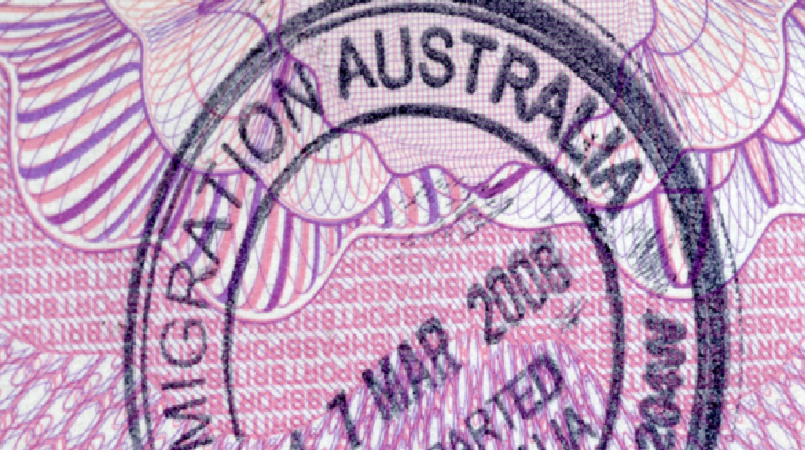
PNG women are manipulating the Australian immigration laws without any questions being asked, a Western Highlands man claims.
John Goimba, a former ANZ bank employee and father of four children, has pursued his wife (named) through appeals to PNG and Australian government departments to no avail.
He alleges that his wife obtained a protection visa from Australia even though she was never in danger of anyone, least of all himself.
“I grew up in a mission station, Rebiamul (Mt Hagen), where my late father was one of the first catechists under Father William Ross. I simply cannot live to see families being separated for no just reason.
“I would not have gone this far to shame myself or my family name, to come out in public, if I am in the wrong.
“The perception people have is that most PNG males are women abusers and so it is ok for a woman to run away. Well for the record, I am not in that basket and I can say that most PNG men are non-violent family loving husbands.
“What I and my children want to know is, what independent investigation did the Australian Government and its relevant agencies carry out to justify protecting (wife named) and a number of other PNG women?” he said.
Goimba may not be alone. A study carried out over the past three years suggests that there is a growing trend of false claims made by PNG women wanting a life in Australia who enter the country through tourist and student visas.
Once they are in Australia, they start applying for protection.
“Sources have named Queensland and Victoria where an increasing number of PNG women are said to have taken up residency in Australia under false pretence for protection, while few include Australian Capital Territory and Western Australia,” the article stated.
“Reports also indicated female spouses of PNG students studying in Australian institutions have resorted to protection visa applications to remain in Australia after students have completed their studies. Female students have also successfully converted from student to protection visas under claims for protection.
“Others sight protection visa claims based on pre-existing medical reasons, which are also considered by the Australian department of immigration.”
A former Australian migration agent says all applications for protection are processed by the department of immigration.
“Genuine or not, they all get through the system. It takes a lot longer to process applications depending on the evidence however, once applications are accepted for processing, applicants are given what is called a bridging visa.
“They can use that bridging visa to gain access to all government services, including Centrelink benefits or do short skills courses, while waiting for their application to be processed for permanent residency status,” the former agent stated.
The department of immigration gives the PNG women temporary accommodation and they live with Afghanis and Iraqis, genuine asylum seekers, while their protection visa is processed, the study said.
“As someone in the visa industry and with family needing visas for Australia, I really get angry at people who rort the visa system, submit false documents, overstay their visas or don’t adhere to visa conditions. Your actions clog up the system and create an attitude of distrust in the Australian Department of Immigration and Border Protection,” a frustrated Australian commented.
“Those people who are genuine applicants are penalised by the lengthy processing times and so often refused entry because of the actions of the dishonest.”
However, a spokesperson from the Australian Department of Immigration and Border Protection said a non-citizen who has arrived lawfully is able to apply for protection.
“An applicant is only eligible for protection if it is found that Australia’s protection obligations are engaged, and all other visa criteria are satisfied. Any application for a protection visa is assessed upon its merits,” the department said.
When asked if they were aware of Goimba’s case, the spokesperson stated: “It would not be appropriate to comment on individual visa applications”.
Just like any other permanent resident, holders of a protection visa can live and work in Australia indefinitely.
The Refugee Advice and Casework Service said: “Your visa allows you to travel in and out of Australia for five years from the date it was granted”.
However, legal advice must be sought if the protection visa holder wishes to return to the country in which they claimed to fear persecution.
“If you travel to this country, the Australian Government might think that the evidence you gave about fearing persecution was not true, or you never had a fear of persecution in that country. The Australian Government could cancel your visa.”
